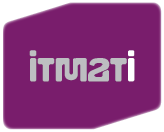Technological services

ITMATI provides services and solutions using mathematical technology to businesses, industries and governments . The main services provided are:
- Product and Solutions Development
- Technological Consultancy
- Collaboration in R&D projects / contracts
- High-level scientific advisory
- Bespoke training courses
- Software development
The technological capabilities in which ITMATI offers its services are:
- Simulation: Applied Mathematics includes computer-aided design and engineering (CAD /CAE). Especially useful in reducing costs and product development time, as well as in process optimization. These techniques can be used in the design of machinery, parts, drawings, pictures or graphics, as well as in the simulation, prediction or study of the behaviour of products or manufacturing processes. The main applications are:
-Mechanical or Structural.
-Heat and Thermodynamic.
-Manufacturing Processes: injection, printing, forge.
-Electronics or electromagnetics.
-Fluids: gases, liquids.
-Chemical reaction
-Acoustic and vibroacoustic.
-In chemical kinetics.
-Combustion
-Environmental.
-Financial derivatives
-Heat and Thermodynamic.
-Manufacturing Processes: injection, printing, forge.
-Electronics or electromagnetics.
-Fluids: gases, liquids.
-Chemical reaction
-Acoustic and vibroacoustic.
-In chemical kinetics.
-Combustion
-Environmental.
-Financial derivatives
- Statistics and Big Data: The Statistics and Operational Research techniques are methods and statistics and operational research with broad impact on industrial processes. The main applications are:
-Quality and reliability control.
-Control of production, processes and stocks.
-Risk and financial analysis
-Customer analysis and market or products studies.
-Exploitation of internal information: Data Mining.
-Design of experiments, clinical trials.
-Biostatistics, epidemiology.
-Control of production, processes and stocks.
-Risk and financial analysis
-Customer analysis and market or products studies.
-Exploitation of internal information: Data Mining.
-Design of experiments, clinical trials.
-Biostatistics, epidemiology.
- Optimization: The main applications are:
-Optimization of production, processes and stocks.
-Optimization of resources.
-Optimization of industrial processes and entrepreneurial.
-Strategy, logistic and planning.
-Decision Making.
-Localization.
-Optimization of resources.
-Optimization of industrial processes and entrepreneurial.
-Strategy, logistic and planning.
-Decision Making.
-Localization.
- Computation: Them main applications are:
-Programming in scientific languages: Fortan, C, C++, Python, Matlab, R
-Implementation of mathematical algorithms.
-High-performance computing / Parallelization og algorithms.
-Reconfigurable hardware.
-Distributed application Design and Implementation.
-Development of graphical interfaces for scientific software
-Applications / Web Technologies
-Data Modeling / Relational databases
-Not relacional databases.
-Artificial intelligence and Automatic learning.
-Quantum computing
-Implementation of mathematical algorithms.
-High-performance computing / Parallelization og algorithms.
-Reconfigurable hardware.
-Distributed application Design and Implementation.
-Development of graphical interfaces for scientific software
-Applications / Web Technologies
-Data Modeling / Relational databases
-Not relacional databases.
-Artificial intelligence and Automatic learning.
-Quantum computing











